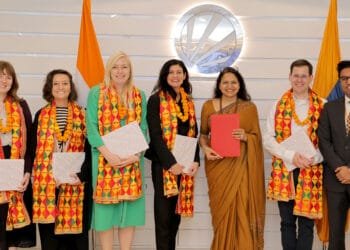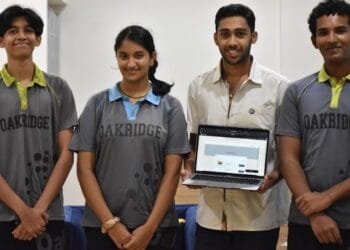Understanding Multicultural Education
Multicultural education is an approach to teaching that recognizes and appreciates the diverse cultural backgrounds of students. Its primary objective is to foster an inclusive learning environment where the uniqueness of each individual is acknowledged and valued. This educational framework emphasizes the importance of incorporating various cultural perspectives into the curriculum, thus promoting a sense of belonging and equality among all students. As societies become increasingly diverse, the significance of multicultural education cannot be overstated.
At its core, multicultural education aims to equip students with the knowledge, skills, and attitudes necessary to navigate and contribute positively to a multicultural society. It encompasses several key components, including content integration, knowledge construction, and equity pedagogy. By integrating diverse perspectives in the curriculum, educators provide students with a more comprehensive understanding of global cultures, histories, and societal dynamics. This approach not only enhances academic engagement but also prepares students for real-world interactions in a multicultural context.
Moreover, multicultural education promotes mutual respect and understanding among individuals from varying backgrounds. When students engage with different cultures, they develop greater empathy and appreciation for others’ experiences and viewpoints. Such engagement is essential in cultivating a harmonious classroom atmosphere where students feel safe to express their identities. This inclusive setting can mitigate bias, prejudices, and stereotypes, ultimately fostering a stronger sense of community within educational institutions.
In a world characterized by rapid globalization and increasing migration, the necessity of multicultural education becomes more pronounced. As future leaders and citizens, students must learn to navigate cultural complexities while valuing diversity. By embracing multicultural education, educators not only empower their students to thrive in a diverse society but also contribute to a more equitable and just world for all.
The Impact of Personal Beliefs on Inclusivity
In the realm of education, personal beliefs and biases wield significant influence over classroom dynamics and the inclusivity of the learning environment. When educators possess self-awareness regarding their own perspectives, they are equipped to foster a more inclusive classroom that embraces diverse backgrounds. Acknowledging one’s own biases is integral to understanding how these beliefs impact teaching philosophies and student interactions.
Educators often enter the profession with a set of values shaped by their unique life experiences, cultural backgrounds, and societal influences. These personal beliefs not only affect their teaching methods but also the expectations they set for their students. For instance, a teacher who may unconsciously hold preconceived notions about students from diverse cultural backgrounds may inadvertently create a less inclusive atmosphere. Consequently, certain students may feel marginalized or disengaged, which can influence their academic performance and self-esteem.
Self-reflection becomes a critical tool for educators aiming to cultivate inclusivity. By examining their own beliefs, teachers can identify areas where biases may arise and actively work to address and mitigate them. This process can involve seeking feedback from peers, engaging in professional development tailored to diversity and equity, and participating in discussions about cultural competency. Such measures encourage educators to broaden their perspectives and understand the experiences of their students, thereby promoting a supportive learning environment.
Moreover, when educators display a commitment to inclusivity, they model the importance of respect and understanding. This not only enhances the classroom culture but also positively influences student interactions, encouraging them to appreciate their peers’ diverse backgrounds. In essence, personal beliefs play a crucial role in shaping the educational experience; fostering a culture of self-awareness among teachers is vital to creating inclusive classrooms that celebrate diversity as a foundational aspect of learning.
The Need for Educators to Be Culturally Responsive
In the increasingly diverse landscape of today’s classrooms, the need for educators to be culturally responsive has never been more urgent. Culturally responsive teaching recognizes the diverse cultural backgrounds of students and utilizes this knowledge to enhance learning experiences. Educators equipped with an understanding of cultural responsiveness are better positioned to foster an inclusive and equitable learning environment. This necessitates comprehensive training that encompasses not only cultural awareness but also practical strategies that promote student engagement.
To effectively teach in multicultural settings, educators must first acquire skills in cultural competence. This involves understanding and acknowledging the varied backgrounds, languages, and traditions that students bring into the classroom. Such awareness enables teachers to build positive relationships with students, which is foundational to effective teaching. Secondly, educators need to engage in culturally relevant pedagogy, a framework that incorporates the cultural references of diverse students in the curriculum. This approach not only validates students’ backgrounds but also makes learning more relatable and meaningful.
Moreover, educators should employ various strategies to connect with their students. This can involve integrating culturally diverse texts, utilizing multilingual resources, and incorporating students’ cultural experiences into class discussions and activities. Collaboration with families and communities is also crucial in this regard. By creating partnerships with parents and community members, educators can gain deeper insights into their students’ backgrounds and interests, which can inform instructional practices. Ultimately, cultural responsiveness in education contributes to better academic outcomes, as students who feel understood and valued are more likely to engage fully in their learning process.
Comparing Education with Corporate Diversity Training
The relationship between education and corporate diversity training has garnered increasing attention, particularly as societies become more multicultural. In essence, while both aim to promote understanding and appreciation of diversity, the strategies employed within educational settings differ significantly from those found in the corporate sector. Corporate diversity training typically adopts a structured method that focuses on measurable outcomes, often incorporating assessments and ongoing evaluations to ensure that employees not only attend training sessions but also apply what they learn in real-world scenarios.
In contrast, multicultural education in schools is often characterized by ad hoc approaches, which can lead to misconceptions about its efficacy. For instance, in a linguistically and culturally diverse country like India, the assumption that mere exposure to different cultures suffices for fostering understanding among students is misleading. Rather, it is crucial to recognize that familiarity does not equate to competence. For effective multicultural education, there must be intentional design and ongoing development, just like in corporate training programs.
Corporate training programs emphasize structured curricula centered on diversity’s importance, practical applications, and ongoing support, which cultivates intercultural competence among employees. In educational settings, similar practices should be adopted; this includes integrating structured lesson plans on cultural awareness, developing critical thinking about societal nuances, and fostering environments where students learn to engage with diverse perspectives actively. By doing so, not only do we prepare students for a diverse workforce, but we also equip them with essential social skills needed to thrive in a rapidly globalizing world.
Ultimately, a comprehensive approach to multicultural education, akin to that of corporate diversity training, is essential for nurturing an inclusive environment that celebrates diversity and fosters intercultural dialogue, ultimately benefiting both individuals and society at large.
























